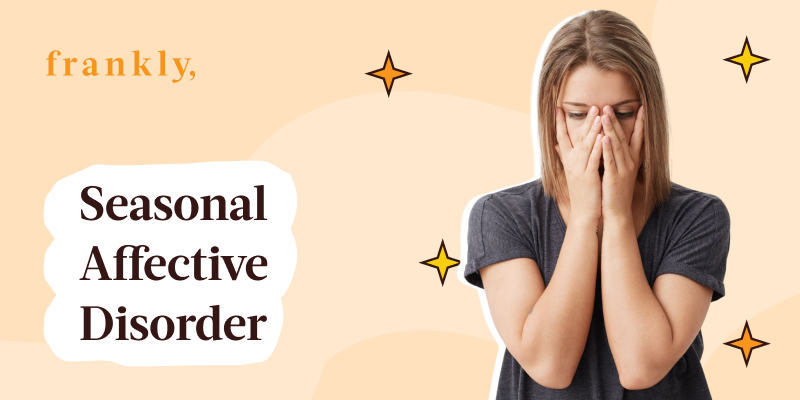Seasonal Affective Disorder

Many people feel more tired, less motivated, and have a hard time adjusting to the decreased sunlight that’s associated with the cooler months. If you’ve ever experienced the “winter blues” you may be dealing with seasonal affective disorder (SAD).
What is seasonal affective disorder?
Seasonal affective disorder is a type of depression that relates to changes in seasons and occurs annually around the same time-frame.
To be officially diagnosed with SAD, patients must meet criteria for major depression coinciding with specific seasons for at least two years. Generally, seasonal affective disorder symptoms tend to surface in the autumn, continue through winter and subside to some degree during spring and summer.
What are the symptoms of seasonal affective disorder?
Symptoms of SAD can include irritability, low energy, sudden weight gain, depression, insomnia, changes in appetite, and increased levels of anxiety. When symptoms are observed for multiple days or longer, or lead a patient to lose interest in activities that they typically enjoy, it may be time to seek professional guidance.
Who is impacted by SAD?
Seasonal affective disorder affects 11 million people in the U.S. to varying degrees of severity. Factors including gender, age, family history, previously diagnosed depression or bipolar disorder, and geographic location can all impact how individuals experience SAD.
- Women are more likely to be diagnosed with seasonal affective disorder than men.
- Seasonal affective disorder is more common in younger adults than older adults.
- Living further from the equator and having low levels of vitamin D are also believed to increase risk of seasonal affective disorder.
What causes seasonal affective disorder?
The cause of SAD is not fully understood. Research shows that your circadian rhythm can be disrupted by reduced levels of sunlight which causes a drop in serotonin, a neurotransmitter which affects mood. The change in season can also trigger a shift in melatonin levels which impacts sleeping patterns and your mood.
How can Frankly help?
Therapy and, in some cases, medication, can be used to alleviate patients’ symptoms. Be aware of your mood shifts and changes in mental wellness as the seasons change, and make it a priority to seek help if needed.
Taking care of your mental health requires time, but paying attention to trends in your mood can prevent more serious complications down the road which may have larger impacts on your life.
Medically reviewed by Chelley Balke, PMC-MSN, NP-C
Written by Frankly Staff
Last updated 11/4/2022

Comments ()